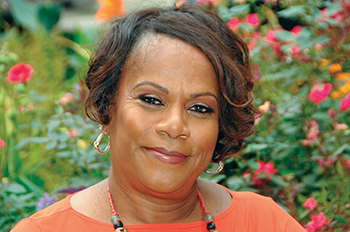
I would like to take this opportunity to publicly thank Dr. Kathy Wehrmann, the immediate past president of NASW, on a job well done. Serving as president of NASW is indeed an honor and privilege. Honestly, I had no inkling that the baton of leadership would be passed during this unsettling and pivotal juncture in the history of the U.S. As a nation, we are facing two public health pandemics — COVID-19 and racism — within the context of a global environmental crisis.
The COVID-19 pandemic is wreaking havoc around the globe — causing pain, hunger and death of loved ones for hundreds of thousands of families. The pandemic also is creating difficult choices and risks for those who work on the front lines, the majority of whom are women, people of color, and others who experience economic vulnerabilities. Stress at work is exacerbated as we navigate disrupted family responsibilities; personal struggles to remain socially connected to our neighbors, friends, and family members; the desire to celebrate milestones such as birthdays and graduations; and the choices of how to pay respect to loved ones by attending virtual funerals.
Coupled with the coronavirus pandemic, the nation and the social work profession are faced with the ongoing trauma of racial injustice, which began in 1619 for African-Americans and even earlier for indigenous peoples. Racial intolerance against people of color in the U.S. has been allowed to fester and grow for centuries and generations. Throughout our nation’s history, calling out racial injustice has resulted in deep divisions in our communities and our nation. In fact, it has manifested into deeply entrenched explicit and implicit biases.
The nation first viewed the recorded murder of Ahmaud Arbery by police vigilantes on February 23, near Brunswick, Ga., while Arbery was jogging. Those who committed this atrocity were not arrested until May 7, and many believe the arrest would not have happened at all without community protest. The nation then learned of another unjustifiable homicide on March 13, when Breonna Taylor, an emergency medical technician, was shot numerous times by police while sleeping in her bed at home in Louisville, Ky. Police advanced without warning under the cover of a no-knock warrant for someone who did not live there and was already in custody. At the time of this writing, the officers had not been charged.
A few days later, we witnessed another violent racist attack on our TV screens, when we saw the 8-minute, 46-second murder of George Floyd in Minneapolis, as a police officer knelt on his neck and three other officers stood by and watched. And we all heard Floyd’s final recorded words — “I can’t breathe."
These murders had one thing in common — all of the victims were African-American U.S. citizens who were killed by police in their own nation. To make matters worse, two weeks later, on June 12 — one day before his daughter’s birthday — Rayshard Brooks fell asleep in a Wendy’s drive-in lane in Atlanta, and was shot in the back by a police officer. Another Black man tragically murdered in the prime of his life by the police.
In response to the racial injustice, Black Lives Matter activists rightfully took to the streets in the U.S. and around the globe in protest. There are new demands for police accountability and justice, for policy change, for reallocation of funds, for chokehold bans, for sanctions against the police code of silence, and for a police national register that records previous abuses by officers. The analysis and demands go even further, calling for the end of systemic racism and the eradication of oppressive systems wherever they exist.
The protests finally caught the attention of those in power. At state and local levels, the responses have varied. Some mayors and governors have been respectfully listening and beginning to take action. Historically, in the U.S., those in power only listen when destruction occurs. But necessary action and change do not always follow. Will the promises being made today make an overall difference?
I believe enough is enough. And social workers cannot become silent bystanders. Social workers, the time is now for us to use our collective knowledge, skills and values to lead the transformative change this nation so desperately needs. The social work profession and NASW must take bold, intentional and deliberate action.
I ask you to commit to engaging with the association and with me as your NASW president. NASW must grow and engage its membership base to meet the needs of those we represent. By working through each NASW chapter, all social workers have the ability to serve as social justice leaders in their communities. All 55 chapters and the national office of NASW must work together — and, with your input, create new pathways that achieve equity for all.
There is no going back to the routine of inequality. If we do, our profession will normalize disparities and racism.
The time for change is now. I sincerely hope each social worker, no matter your position, will join me at the table of change. Let us work as equal partners on the critical issues NASW will confront and address for our nation.
Contact Mit Joyner at president@socialworkers.org